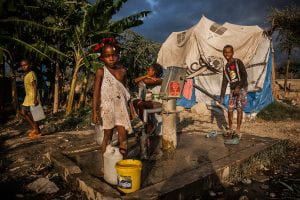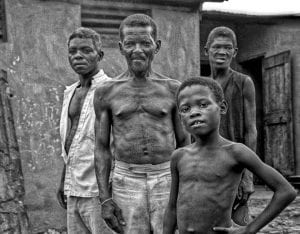Historically abortions have been preformed for centuries. A report published by the Guttmacher Institute indicates that an approximate 862,320 abortions were performed within the United States alone in 2017. Typically the topic of abortion can be broken down into three views: the extreme conservative, the extreme liberal, and the moderate view which lies between both extremes. Those of whom agree with the extreme conservative view (anti-abortionist and pro-life activist) argue that “to have an abortion would be, by definition, homicide” (Gordon). However, extreme liberals (abortionist) disagree claiming that a human’s personhood only begins after birth or a shortly after (roughly a month). On the other hand, the moderate view supports the idea that there is a moral break in which it is acceptable to have an abortion. Ultimately, making a not so clear distinction between human beings and human offspring who tend to lack a moral status (Gordon).
However, within the essay Reproductive Choices: The Ecological Dimension, author Ronnie Zoe Hawkins introduces a fourth and compelling viewpoint concerning our environment. Hawkins describes this ecofeminism view as the link between population growth, poverty, and environmental degradation. In particular, the author claims that the astonishing human population increase within the last two centuries has created a growing number of poor people who are “forced to make a living on increasingly marginal land, with resultant deforestation, overgrazing, soil erosion, or an assortment of other environmental problems further exacerbating their poverty” (Hawkins 690). Thus, this negative cycle continues as these impoverished individuals move on and repeat the process elsewhere. Sadly, humans are not the only ones affected by population growth and environmental degradation. Entire habitats and their animal species are often forcefully extinct creating a massive loss for the planet.
While most individuals living within industrialized nations may perceive population growth and environmental degradation as a problem for those in the third world they are sadly mistaken. In reality industrialized nations are no different, in particular “the environmental toll taken by each new human born within the ‘developed’ world will be very much greater than that of one born else where” (Hawkins 692). Thus, Hawkins urges her audience to support a woman’s decision not only to obtain an abortion as a fundamental right, but in hopes of lowering the population growth in order for everyone to live healthier lives.
When looking at abortion through an ecofeminist lens Hawkins’ account makes sense. In particular when looking at the number of children born on a daily bases. According to a report published by the United Nations approximately 360,000 babies are born each day around the world. Equaling a total of more than 130 million children born a year. In a country like The Republic of Haiti who’s agricultural sector has suffered almost total deforestation resulting in accelerated soil erosion, depleted fertility, reduced water retention and silting of the country’s waterways the lack of access to contraceptives and safe abortions has been detrimental (New Agriculturist). Unfortunately, widespread child labor is frequently used in rural areas. With children work long hours on family plantations or being sent off to wealthier families in urban areas to work as domestic servants. Not only are these children overworked, but are also exposed to frightening levels of malnutrition.
Malnourishment refers to deficiencies, excesses, or imbalances in a person’s intake of energy and/ or nutrients (World Health Organization). Tragically in Haiti “1 in 5 children are malnourished, 1 in 10 are acutely malnourished and 1 in 14 will die before reaching the age of 5” (Meds & Food For Kids). However, for those of whom survive the effect of chronic and acute malnutrition are life-long.

Kids are fetching water from the public water pump in the tent camp of Pois Congo slum in Port-au-Prince.
Adults who suffered malnutrition in the first two years of life in Haiti tend to have a reduced physical and mental development for their entire lives.
Abortion can be a very difficult topic to discuss and it is important to listen to every view when making policy that will untimely affect us all. Yet for those who identify as pro-choice it is essential “to stop equivocating about the morality of abortion and take a more hardline approach to our rights. Abortion isn’t just necessary because people will get them anyway, or because our privacy is important – but because women’s desire to seek the life they want in the way that men can is our right and its purpose, not a side effect” (Valenti). However, this goes beyond a woman’s desire to seek a good and decent life, but for all those individuals living in devastating poverty who will never get a change to live humanly. 
Source:
https://www.theworldcounts.com/challenges/toxic-exposures/polluted-bodies/how-many-babies-are-born-a-day
https://umassd.umassonline.net/webapps/blackboard/execute/content/file?cmd=view&content_id=_1485975_1&course_id=_21926_1
https://www.who.int/news-room/fact-sheets/detail/malnutrition
https://www.theguardian.com/commentisfree/2014/oct/14/abortion-right-to-privacy-women-right-to-equality

Hello Angela,
The facts and statistics you mentioned adds to our knowledge about people in Haiti. But if we have to consider countries that are suffering from such issues then we’ll see that there are 10 malnourished countries of which Haiti is on number 1 with median age of 24 and density of 414 per Km2 that is 1072 people per mi2. Guatemala being on number 10 has median age of 22.9 and density of 109 per Km2 that is 433 people per mi2. These data tells us that how increased population in these countries results in lack of food supplies per person leading to malnutrition.
Laurie Mazur in her article, ‘Is Haiti Overpopulated?’ addresses the issue of poverty and overpopulation. She mentioned about former US diplomat who told CNN that Haiti is overpopulated because its people know nothing about birth control. Laurie agrees to the fact that family planning and reproductive health services are needed for Haitians. She writes, “Increased contraceptive used would improve public health and reduce pressure on Haiti’s severely depleted resources.”
You are right that abortion is very difficult topic and sensitive too because there are so many reasons for abortion. But when I think about poverty and overpopulation I don’t think that abortion is relevant to it or the only solution to it. Because poor people who decides to have children in order for coping up with financial crisis it’s their decision to do it and I don’t think so most of them including women wants to abort. But of course, if abortion is permitted then there can be an option for those who wants to. So according to me such countries need awareness regarding how to stop having children by using contraceptives and other birth control options so that women doesn’t need to think about abortion.
Apologies I forgot to add links before sending
https://www.worldometers.info/world-population/guatemala-population/
https://www.worldometers.info/world-population/haiti-population/
https://rewire.news/article/2010/01/21/is-haiti-overpopulated/